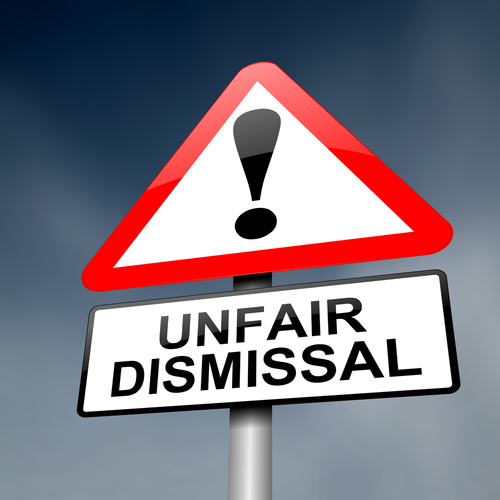What is 'unfair dismissal'sWhat does Fair Work Australia (FWA) believe is 'harsh, unjust or unreasonable'?What does FWA define as 'a genuine redundancy'?Am I eligible to make an application for unfair dismissal?
What is 'unfair dismissal'?
Whether the dismissal of an employee is legally 'unfair' is a decision made by Fair Work Australia (FWA).
There's a whole process to go through, and employees must be eligible, but in simple terms, Fair Work Australia defines an 'unfair dismissal' as where someone is dismissed AND
- the dismissal was harsh, unjust or unreasonable, and
- the dismissal was not a case of genuine redundancy, and
- the dismissal was not consistent with the Small Business Fair Dismissal Code, where the employee was employed by a small business.
For these purposes, a 'small business' is defined as a business that employs fewer than 15 employees.
What does FWA believe is 'harsh, unjust or unreasonable'?
In considering whether a dismissal was harsh, unjust or unreasonable, Fair Work Australia takes into account:
- whether there was a valid reason for the dismissal related to the person's capacity or conduct (including its effect on the safety and welfare of other employees), and
- whether the person was notified of that reason, and
- whether the person was given an opportunity to respond to any reason related to the capacity or conduct of the person, and
- any unreasonable refusal by the employer to allow the person to have a support person present to assist at any discussions relating to dismissal, and
- if the dismissal related to unsatisfactory performance by the person whether the person had been warned about that unsatisfactory performance before the dismissal, and
- the degree to which the size of the employer's enterprise would be likely to impact on the procedures followed in effecting the dismissal, and
- the degree to which the absence of dedicated human resource management specialists or expertise in the enterprise would be likely to impact on the procedures followed in effecting the dismissal, and
- any other matters that FWA considers relevant.
What does FWA define as 'a genuine redundancy'?
Fair Work Australia defines a person's dismissal as a case of genuine redundancy if:
- the person's employer no longer required the person's job to be performed by anyone because of changes in the operational requirements of the employer's enterprise, and
- the employer has complied with any obligation in a modern award or enterprise agreement that applied to the employment to consult about the redundancy.
Fair Work Australia goes on to clarify that:
A person's dismissal was not a case of genuine redundancy if it would have been reasonable in all the circumstances for the person to be redeployed within:
- the employer's enterprise
- the enterprise of an associated entity of the employer.
So what does this mean?
In simple terms, if someone else is allocated the tasks performed by the person who has been dismissed, the redundancy may not be seen as genuine.
The employer also has to consult about redundancies in accordance with any Award or Enterprise Agreement that might apply.
And if the person could have been reasonably found another job in the same or a another business of the employer, it also may not be regarded as a genuine redundancy.
If you are not sure if you have been unfairly dismissed, talk first to CWUVic.
Am I eligible to make an application for unfair dismissal?
You are eligible to make an application for unfair dismissal if you have completed the minimum employment period of:
- one year — where the employer employs less than 15 full-time equivalent employees (a small business employer)
- six months — where the employer employs 15 or more full-time equivalent employees.
In addition, if you earn more than $113,800 per year, you are only eligible to apply if you are covered by an award OR an enterprise agreement applies to you.
There are a number of types of employee who are not eligible. These include:
- contractors
- employees who resign and were not forced to do so by their employer
- those employed under a contract for a specified period of time, a specified task, or the duration of a specified season who are dismissed at the end of the period, task or season
- trainees whose employment was for a specified period of time and who are dismissed at the end of the training arrangement
- employees who have been demoted but have had no significant reduction in their remuneration or duties and who remain employed by the employer who demoted them.
Contact The Union For Advice and Assistance















